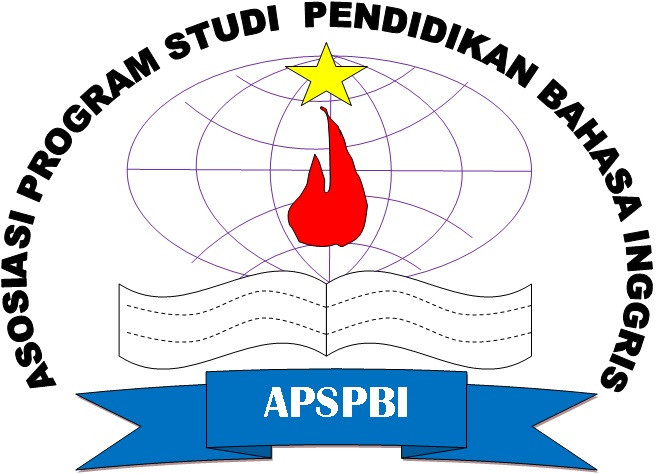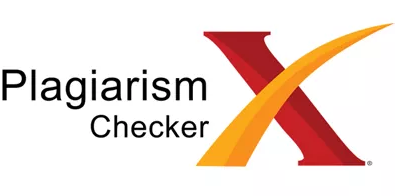Teachers’ Strategies to Implement Higher-Order Thinking Skills in English Instruction
Abstract
This study investigated English teachers’ strategies to implement HOTS (Higher-Order Thinking Skills) during the learning process. To prepare students for education 4.0, Indonesian government has mandated that HOTS are taught in every level of education. The research aimed to discover how English teachers implemented HOTS in their teaching strategies. HOTS are promoted in the 2013 curriculum in which English teachers should develop their strategies to implement these skills through student-centered learning instead of teacher-centered learning that may be a common phenomenon for teachers in Indonesia. The participants of the study were fifteen senior high school English teachers in Salatiga, and five of whom were interviewed and observed. The data were obtained through questionnaire, interview, and observation. The data analysis involved counting the percentage for the questionnaire and reading collected transcripts from the interviews and the observation notes. The data analysis was processed using descriptive statistics for the questionnaire and coding for eliciting the transcripts and observation notes. The results of the study showed that the effective teaching strategies in using HOTS were asking open-ended questions and encouraging students to give their critical opinion, while also acting as a facilitator.
Keywords
Full Text:
PDFReferences
Abdul, Rafiza, Chun, Razak, & Lee, M. (2012). Promoting Higher Order Thinking In Chinese Language Literary Text via Online Social Network.prnt. 3(16), 199–210.
Ariyana, Y., Pudjiastuti, A., & Bestary, R. (2018). Buku Pegangan Pembelajaran Berorientasi pada Keterampilan Berpikir Tingkat Tinggi: Program Peningkatan Kompetensi Pembelajaran Berbasis Zonasi. 95.
Bergmann, J., Sams, A., & Bruss, K. (2015). Watch and Learn; Flipped Learning. 1–64. Retrieved from http://webcasts.astd.org/uploads/assets/264/document/TDFlippedLearning.pdf
Bernaisch, T., & Koch, C. (2016). Attitudes towards Englishes in India. World Englishes, 35(1), 118–132. https://doi.org/10.1111/weng.12174
Bloom, B. S. (1956). Taxonomy of educational objectives. Vol. 1: Cognitive domain. New York: McKay, 20–24.
Bradshaw, A., Bishop, J., Gens, L., Miller, S., & Rogers, M. (2002). The Relationship of the World Wide Web to Thinking Skills. Educational Media International, 39(3–4), 275–284. https://doi.org/10.1080/09523980210166071
Calderón, M., Slavin, R., & Sánchez, M. (2011). Effective Instruction for english learners. Future of Children, 21(1), 103–127. https://doi.org/10.1353/foc.2011.0007
Crawford, C. M., & Brown, E. (2002). Focusing Upon Higher Order Thinking Skills: WebQuests and the Learner-Centered Mathematical Learning Environment.
Creswell, J. W. (2014). A concise introduction to mixed methods research. Thousand Oaks: SAGE publications.
Dunn, R., & Dunn, K. (1979). Learning Styles/Teaching Styles: Should They ... Can They ... Be Matched?. Educational Leadership, 36(4), 238–244.
Ganapathy, M. G., Singh, M. K. M., Kaur, S., & Kit, L. W. (2017). Promoting higher order thinking skills via teaching practices. 3L: Language, Linguistics, Literature, 23(1), 75–85. https://doi.org/10.17576/3L-2017-2301-06
Goldenberg, C. (2013). Unlocking the research on English Learners. American Educator, 37, 4–38.
Lewis, A., & Smith, D. (1993). Defining higher order thinking. Theory into Practice, 32(3), 131–137.
Narayanan, S., & Adithan, M. (2015). Analysis Of Question Papers In Engineering Courses With Respect To Hots (Higher Order Thinking Skills). American Journal of Engineering Education (AJEE), 6(1), 1–10. https://doi.org/10.19030/ajee.v6i1.9247
Newmann, F. M. (1987). Higher Order Thinking in the High School Curriculum. NASSP Bulletin, 72(508), 58–64.
Paul, R., & Elder, L. (2008). Critical Thinking: Strategies for Improving Student Learning, Part II. Journal of Developmental Education, 32(2), 34–35.
Polly, D., & Ausband, L. (2009). Developing Higher-Order Thinking Skills through WebQuests. Journal of Computing in Teacher Education, 26(1), 29–34. Retrieved from http://content.ebscohost.com/ContentServer.asp?T=P&P=AN&K=EJ919550&S=R&D=eric&EbscoContent=dGJyMNXb4kSep7I4wtvhOLCmr0mep7JSsqa4S7CWxWXS&ContentCustomer=dGJyMPGtrk2xrLRPuePfgeyx44Dt6fIA%5Cnhttp://search.ebscohost.com/login.aspx?direct=true&db=eric&AN=EJ856
Snyder, L. G., & Snyder, M. J. (2008). Teaching Critical Thinking and Problem Solving Skills. The Delta Pi Epsilon Journal, 90–100. Retrieved from https://tccl.arcc.albany.edu/knilt/images/a/a5/Teaching_critical_thinking.pdf
Willingham, D. T. (2008). Critical Thinking: Why Is It So Hard to Teach? Arts Education Policy Review, 109(4), 21–32. https://doi.org/10.3200/AEPR.109.4.21-32
Zuraina, A. (2009). A Case Study on Collaborative Learning to Promote Higher Thinking Skills (HOTS) among English as a Second Language (ESL) Learners. Jurnal UMP Social Sciences and Technology Management, 1(1), 1–14.
DOI: https://doi.org/10.31002/metathesis.v4i1.2048
Refbacks
- There are currently no refbacks.

This work is licensed under a Creative Commons Attribution-ShareAlike 4.0 International License.
Metathesis: Journal of English Language, Literature, and Teaching is published by English Education Department, Faculty of Teacher Training and Education, Universitas Tidar, Magelang, Indonesia in collaboration with Asosiasi Program Studi Pendidikan Bahasa Inggris Se-Indonesia (APSPBI)
ISSN: 2580-2712 (print) and 2580-2720 (online)
Jalan Kapten Suparman 39 Magelang, Jawa Tengah, Indonesia 56116
Phone (0293) 364113 Fax (0293) 362438













